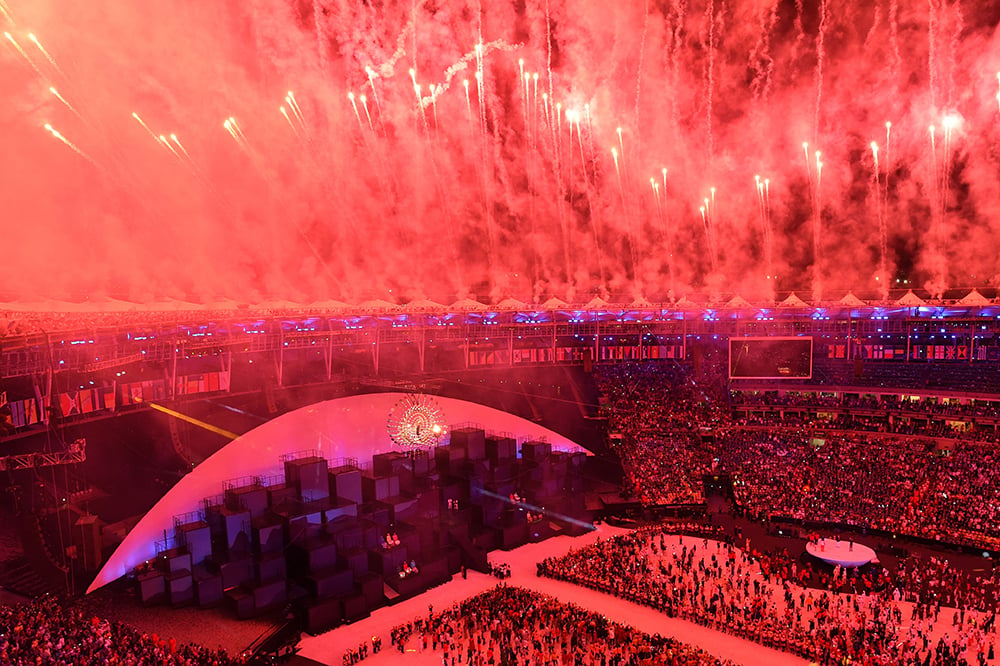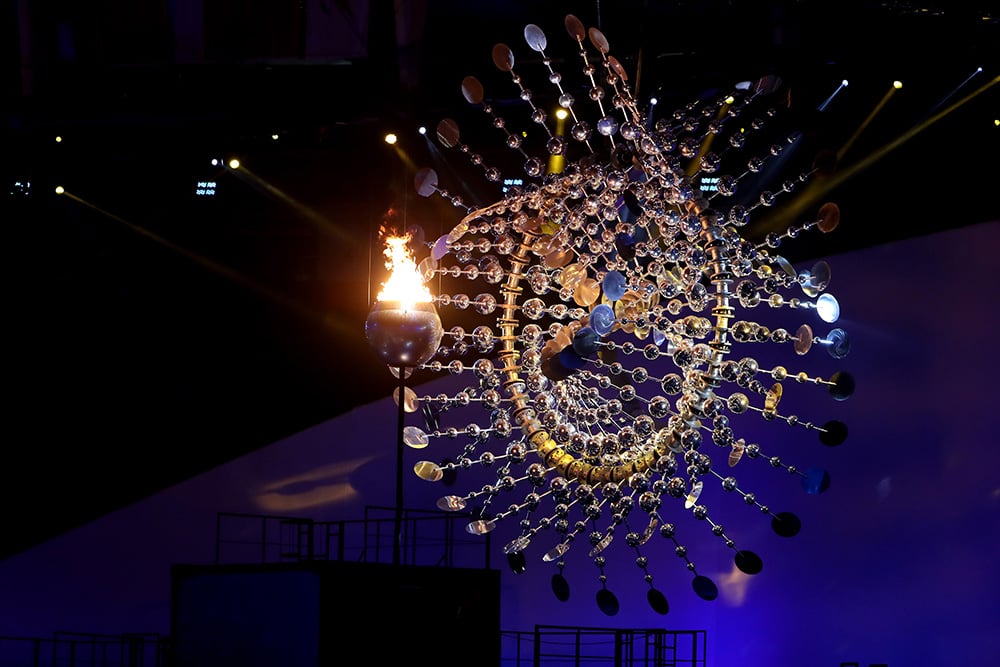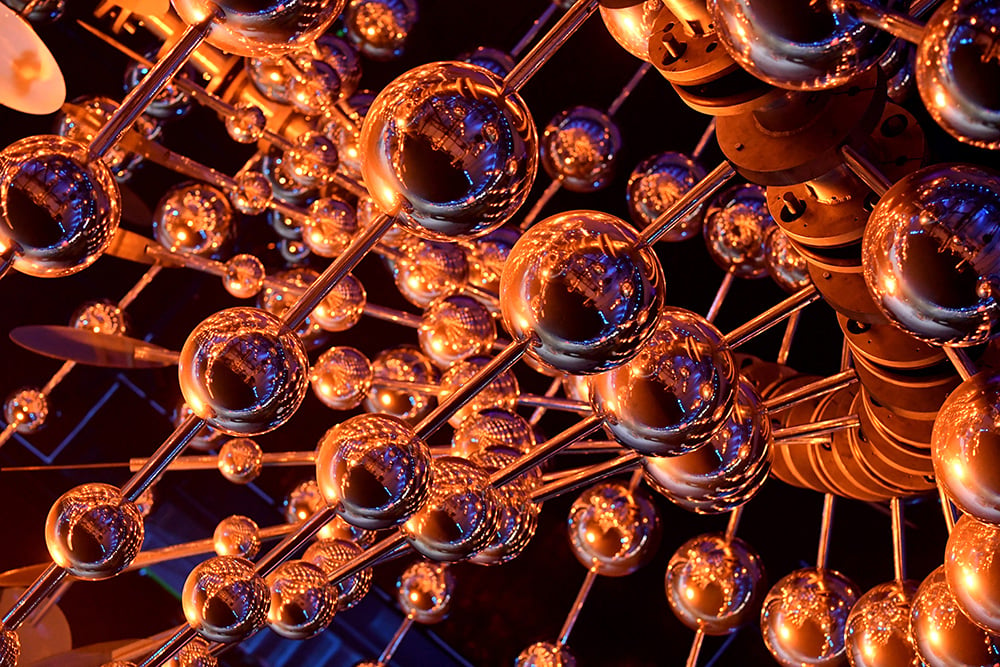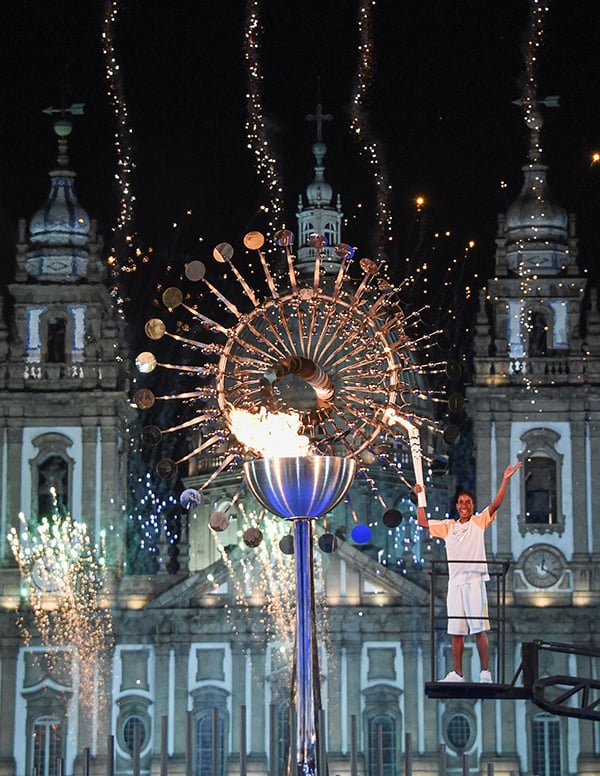Art World
Two-Ton Kinetic Sculpture Mesmerizes Crowd at Olympic Torch Lighting Ceremony
The sculpture is meant to represent the sun.

The sculpture is meant to represent the sun.

Sarah Cascone

It was a busy opening weekend for the Summer Olympic Games, which kicked off August 5 with its opening ceremonies at Maracanã Stadium in Rio de Janeiro. And while Brazil put forth some of its biggest stars, including tennis champ Gustavo Kuerten and supermodel Gisele Bündchen, it was perhaps American artist Anthony Howe who stole the show with a stunning kinetic sculpture that came to life behind the Olympic flame
The undulating sculpture, glittering in the firelight, made for a brilliant centerpiece to cap off the long ceremony. Brazilian Olympic marathon runner Vanderlei Cordeiro de Lima, who memorably took bronze at the 2004 Summer Olympic Games in Athens, bravely continuing after being physically-attacked by an onlooker while leading in the latter stages of the event, had the honor of lighting the flame.

The Olympic Cauldron is lit alongside a sculpture by Anthony Howe at the Rio 2016 Olympic Games at Maracana Stadium. Courtesy of Christian Petersen/Getty Images.
Once ignited, the flame rose gently above the crowd, rising to meet Howe’s two-ton behemoth, a massive metal and glass piece measuring 40 feet in diameter. (The cauldron itself is actually quite small compared to those lit in recent Olympics—reportedly to make it more energy efficient a part of these Games’ anti-global warming message.) Howe also created a smaller sculpture for a second flame, lit outside the Candelaria Church downtown.
“My vision was to replicate the sun, using movement to mimic its pulsing energy and reflection of light,” said Howe in a press release. “I hope what people take away from the cauldron, the Opening Ceremonies, and the Rio Games themselves is that there are no limits to what a human being can accomplish.”

The Olympic flame and cauldron is reflected in Anthony Howe’s sculpture during the Opening Ceremony of the Rio 2016 Olympic Games at Maracana Stadium. Courtesy of Richard Heathcote/Getty Images.
Howe wasn’t the only artist involved with the Olympic flame. Earlier in the torch’s journey from Olympia, Greece, Japan’s Mariko Mori was among those tapped to carry it. In celebration of the Games, she has created a permanent environmental art installation atop a Brazilian waterfall.
Howe’s work has been featured in New York at filmmaker Baz Luhrmann’s window displays for Barney’s, and can be found in sculpture parks in United Arab Emirates, Italy, and, according to the artist’s website, on Orcas Island, Washington, where the artist lives and works.

Brazilian teen athlete Jorge Alberto Gomes, 14, lights the cauldron at Candelaria Church with the Olympic torch following the opening ceremony of the Rio 2016 Olympic Games in Rio de Janeiro. Courtesy of Mark Ralston/AFP/Getty Images.